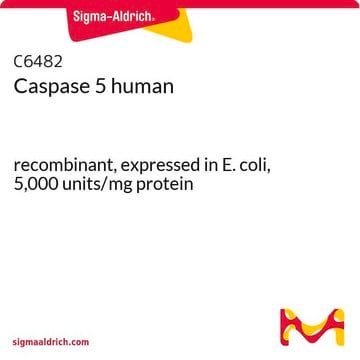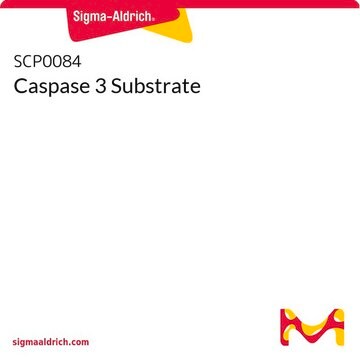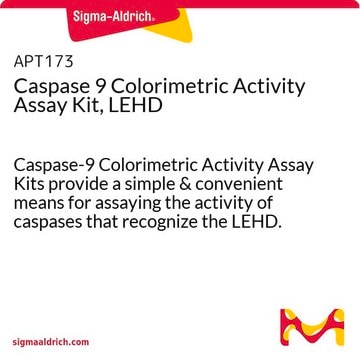C8726
Caspase 9 human
≥90% (SDS-PAGE), recombinant, expressed in E. coli (C-terminal histidine-tagged), buffered aqueous solution, >2,000 units/mg protein
Sinónimos:
ICE-Lap6, Mch6
About This Item
Productos recomendados
recombinant
expressed in E. coli (C-terminal histidine-tagged)
Quality Level
assay
≥90% (SDS-PAGE)
form
buffered aqueous solution
specific activity
>2,000 units/mg protein
mol wt
N-terminal prodomain plus the large subunit. 36 kDa (caspase 9 expressed as a C-terminal histidine-tagged protein appears as a two-subunit protein)
small subunit 13 kDa (subunit containing the histidine tag)
UniProt accession no.
shipped in
dry ice
storage temp.
−70°C
Gene Information
human ... CASP9(842)
¿Está buscando productos similares? Visita Guía de comparación de productos
Biochem/physiol Actions
Unit Definition
Physical form
Storage Class
12 - Non Combustible Liquids
wgk_germany
WGK 1
flash_point_f
Not applicable
flash_point_c
Not applicable
ppe
Eyeshields, Gloves, multi-purpose combination respirator cartridge (US)
Certificados de análisis (COA)
Busque Certificados de análisis (COA) introduciendo el número de lote del producto. Los números de lote se encuentran en la etiqueta del producto después de las palabras «Lot» o «Batch»
¿Ya tiene este producto?
Encuentre la documentación para los productos que ha comprado recientemente en la Biblioteca de documentos.
Nuestro equipo de científicos tiene experiencia en todas las áreas de investigación: Ciencias de la vida, Ciencia de los materiales, Síntesis química, Cromatografía, Analítica y muchas otras.
Póngase en contacto con el Servicio técnico








